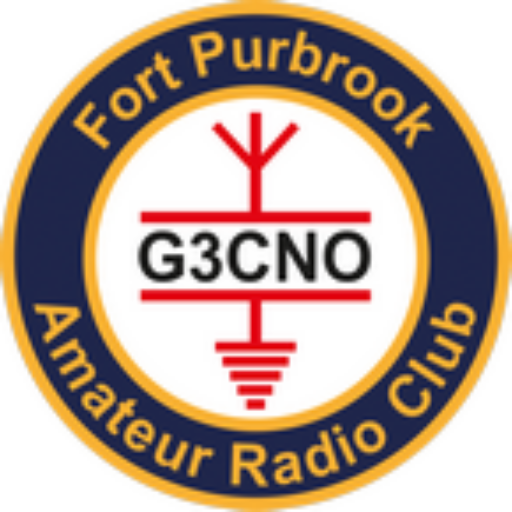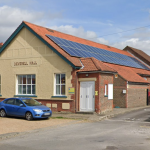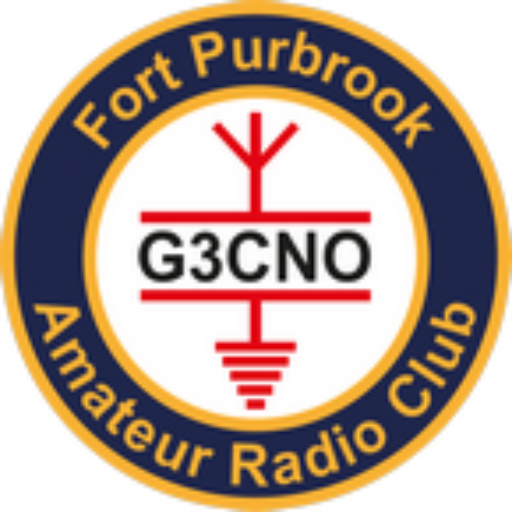Fort Purbrook Amateur Radio Club FAQs

You’re interested in amateur radio, and you have questions. Let’s see if we can help you out with our Frequently Asked Questions (Answered!) on Fort Purbrook Amateur Radio Club page.
If you still have any unanswered questions, please pop them below in the Comments Section or, if you prefer, get in touch with us (via the blue contact button).
General Questions about Amateur Radio
What is amateur radio (ham radio)?
A: Amateur radio is a popular technical hobby and a service that uses various radio frequency spectra for non-commercial exchange of messages, wireless experimentation, self-training, private recreation, radio sport, contesting, and emergency communication. “Hams” use a wide variety of communication modes and can connect with people locally, across the country, and around the world.
Is amateur radio the same as CB radio?
A: No, amateur radio is distinct from CB (Citizens Band) radio. Amateur radio operators must pass an exam to obtain one of the three levels of UK amateur radio licences (Foundation, Intermediate, and Full). This process confirms an amateur radio operator to have sufficient knowledge of radio theory, regulations, and operating practices, allowing them to responsibly enjoy a much wider range of frequencies, power levels, and operating modes compared to CB radio, which is limited in scope and does not require a licence.
What are the benefits of becoming a radio amateur?
A: Becoming a radio amateur offers many benefits, including connecting with a global community of enthusiasts, learning about electronics and radio technology, participating in various radio activities (such as contests and special event stations), providing emergency communications support, and continuous self-training.
Learn more about amateur radio…About Fort Purbrook Amateur Radio Club
Where is the club located?
A: Our club is based in the Peter Ashley Activity Centre (Fort Purbrook).
Our address is:
Peter Ashley Lane,
Portsdown Hill Road,
Portsmouth, Hampshire,
PO6 1BJ,
United Kingdom.
- Google Maps: https://maps.app.goo.gl/hHsodwaEYGJtk5pT7
- Open Street Maps: https://www.openstreetmap.org/?#map=18/50.853805/-1.038380
We mostly use this location for our field events.
Where are the club meetings held?
The club meets on the last Friday of the month (except December) at Deverell Hall, 84 London Rd, Purbrook, Waterlooville PO7 5JU.
- Google Maps: https://maps.app.goo.gl/Vky2eCyftpM3ioTh6
- Open Street Maps: https://www.openstreetmap.org/?#map=19/50.869944/-1.043653
Is there car parking? 🚗💨
A: Yes.
At the fort there’s free car parking outside both the east and west entrances.
At Deverell Hall, there’s free parking at the front and behind the building.
What are the local bus routes to the Fort? 🚌
A: #7 and #20 (Stagecoach) bus routes stop immediately outside the Peter Ashley Activity Centre on Peter Ashley Lane, Portsdown Hill Road, PO6 1BJ.
Both buses travel from The Hard Interchange (Portsmouth) to Wecock Farm/Waterlooville (#7) and to West Leigh (#20).
When travelling from Gosport, Fareham, Hayling Island, Chichester, and further afield using public transport, you might use Google Maps to plan how to get yourself to either the #7 or #20 bus routes.
Note: there is a First Bus #20 route, which takes a different route.
How long has the club been in operation?
A: We were established in July 2011.
How many members does the club have?
A: Our total membership varies from year to year, but on average we have between 30 and 50 members during any one year.
Are there any awards/prizes?
A: We run the G3VXM Merit Award for Best Progress in the Hobby in memory of Dave G3VXM (details).

FPARC Club Logo
Joining the Club & Membership
How do I join the Fort Purbrook Amateur Radio Club?
A: The usual approach is for you to come to up to three meetings and/or events before considering joining us. This process allows all of us to see if we’re right for each other. The cost to you will be just £1.00 per visit (which we all pay to cover our room/field rental, etc.), while tea, coffee, and biscuits are free of charge. Full information on how to join, including membership forms and fees, can be found on our ‘Join Our Club’ page.
Do I need to have a radio licence to join the club?
A: No, you do not need to have an OFCOM amateur radio licence to join FPARC as a club member*. We welcome anyone with an interest in amateur radio, whether you are a complete beginner, studying for your licence, already a licensed operator, or just enjoy listening to amateur radio transmissions (i.e. a “Shortwave Listener” / SWL).
*You also won’t need a licence to make a transmission using any of our (or our club member’s, or even your own) equipment, provided that you’re being supervised by a licensed individual at the time. You will need your own licence to transmit unsupervised.
What are the annual membership fees?
A: Not very much. Our membership fees don’t change very often, and if you join in the middle of our year (March through August), the joining fee is half-price. You pay no membership fees until you actually join the club, so visiting us will cost you just £1.00 per visit.
The current membership fee is available on our ‘Join Our Club’ page.
What do my membership fees go towards?
A: Membership fees contribute to the upkeep of our club facilities, maintenance of club equipment, insurance, licensing, administrative costs, and supporting club activities like training sessions and special events.
How do I get a membership application form?
Application forms and a copy of the club constitution are available from Peter G4NKX (Membership Secretary) at any club meet/event or via email on request – but remember that you’re asked to attend up to three events/meetings before submitting your application form.
Training & Licensing
Can I get a radio licence from FPARC?
A: No. After passing an amateur radio examination, administered by the Radio Society of Great Britain, OFCOM will grant you your amateur radio licence.
Can I be supervised by a club member?
A: Yes, when you’re making a transmission using any of our (or our club member’s, or even your own) equipment and you’re being supervised by a licensed individual at the time, you will be operating legally.
For example, you’ll transmit using the supervisor’s call sign, and you’ll be operating within the parameters of the supervisor’s licence (eg 25W maximum for a supervisor with a foundation licence).
You will need to have your own licence to transmit unsupervised.
Does the club offer training for amateur radio licences?
A: We provide support (aka people to talk with, ask questions of, etc.) but we no longer provide formal training courses. Nowadays, there are many excellent free online training courses available, including the Essex Ham Online Training Foundation Course that we would recommend.
Alternatively, you can purchase training publications that provide you with the knowledge you’ll need for each exam level.
For an up-to-date list of licence training courses, see https://www.essexham.co.uk/train/courses-and-exams/
How long does it take to get an amateur radio licence?
A: The time it takes varies depending on the individual and the licence level. The Foundation licence can often be achieved within a few weeks of dedicated study and practical sessions, while Intermediate and Full licences require more in-depth knowledge and preparation.
When you’re ready, you’ll book your online examination directly with the Radio Society of Great Britain.
What is the Foundation licence and what can I do with it?
A: The Foundation licence is the UK entry-level amateur radio licence. Although it’s an entry-level licence, it allows you to operate on the majority of amateur bands using all modes (analogue, digital, satellite, FM, AM, SSB (upper & lower sideband) and CW), up to 25 watts of power (enough to reach Australia from the south coast in fact) and opportunities to use all kinds of antennas and amateur radio equipment.
The foundation licence offers everything required for a full, enjoyable introduction to the hobby. In fact, a significant number of operators stay with their foundation licence choosing not to move to the intermediate or full licence level.
Learn more about starting in the hobby…Club Activities & Facilities
When and where do the club meetings take place?
A: Our club holds regular meetings – the last Friday of the month (except December, when we meet earlier due to the holiday period). Please check our ‘Events Diary’ for the latest schedule of activities.
When are your Field Events?
We schedule our field events for the warmer months (May-September) annually. You can see a list of our scheduled and historic field events here.
What kind of activities does the club offer?
A: We offer a wide range of activities, including monthly meetings (sometimes with presentations, sometimes a “natter night”), on-air radio nets, field weekends, participation (usually informally) in local, regional, and worldwide contests, practical workshops, GB1PF special event station operations, and social gatherings such as our Lunchtime Socials.
Our online events diary will show you what’s coming up (as well as showing historical events).
Can I use the club’s radio equipment if I don’t have my own?
A: Yes, club members have access to the club shack and its equipment, providing an excellent opportunity to gain operating experience without needing to invest in your own gear initially.
For licensed members or those who are being supervised, if you have your own transceiver(s), you may connect one of them to our club shack’s dedicated antenna for club members. This is especially useful if your QTH (your home) suffers from RF interference.
At times, we have equipment that you may borrow (take home), provided that you’re appropriately licensed or will be supervised if you intend to transmit.
What is a “radio net”?
A: A radio net is a scheduled on-air gathering where members check in and chat with each other over the radio. It’s a great way to practice operating skills, test equipment, and stay connected with other club members. See our 2m Club Net page for further information.
Are there opportunities for practical learning and construction?
A: Absolutely! We encourage practical learning and often hold workshops or practical events where members can build projects, troubleshoot equipment, and learn soldering or other technical skills. Our warmer months field events cater to those who want to experiment (alone or with others). These are ideal opportunities to test out homebrew equipment and new gear.
Is the club involved in community events?
A: Yes, sometimes. It all depends on what we’re being asked to help with and what resources we have available at the time.
For example, in the past couple of years we’ve helped the regional Scouts with their JOTA participation (Jamboree on the Air) – either by inviting the Scouts to come to the Fort to have experiences with amateur radio or by a club member taking amateur radio equipment to the Scouts themselves.
Getting Started & Support
Do I need to buy expensive equipment to get started?
A: Not at all. You can start with relatively inexpensive equipment, especially once you have your Foundation licence. Many radio items can be purchased second-hand, or be donated by elder club members. A Baofung VHF/UHF hand-held radio is around £40 on Amazon. The club provides access to some equipment, and experienced members can offer advice on suitable starter gear.
Is there support available if I have questions or need help with my radio?
A: Yes, the club prides itself on its supportive community. Experienced members are always happy to offer advice, guidance, and assistance with technical issues or operating questions. We also have an online discussion group for club members.
What’s the average age / demographic of club members?
A: Everyone is welcome regardless of background, stage in the hobby, gender, age, race, or demographic. It would paint an inaccurate picture to give you an average age of the membership; some members are in their early twenties, and some are much, much older.
The majority of our members are men, although there are some women members too.
How can I stay up-to-date with club news and events?
A: We recommend club members regularly check with our private BBS. Both members and nonmembers can see planned events on our Events Diary page.
What if I’m shy or don’t know anyone?
A: Our club is known for its friendly and welcoming atmosphere. Many members started just like you, without knowing anyone. Our activities are designed to be inclusive, and you’ll quickly find yourself part of a supportive community of like-minded individuals. If you’re new to the hobby, you can learn by watching and asking questions.
As you learn more, you can begin advising others.
Contact us for a Visit
You are welcome to contact our Membership Secretary: Peter G4NKX or our Examination Secretary: Graham M0CYX via our Contact Us Page to arrange for you to visit us.
We’ll be happy to hear from you.
Contents
- 1 Fort Purbrook Amateur Radio Club FAQs
- 2 General Questions about Amateur Radio
- 3 About Fort Purbrook Amateur Radio Club
- 4 Joining the Club & Membership
- 5 Training & Licensing
- 6 Club Activities & Facilities
- 6.1 When and where do the club meetings take place?
- 6.2 When are your Field Events?
- 6.3 What kind of activities does the club offer?
- 6.4 Can I use the club’s radio equipment if I don’t have my own?
- 6.5 What is a “radio net”?
- 6.6 Are there opportunities for practical learning and construction?
- 6.7 Is the club involved in community events?
- 7 Getting Started & Support
- 8 Contact us for a Visit





















0 Comments